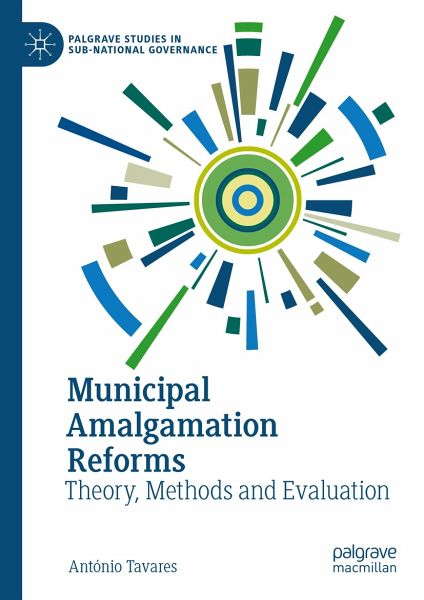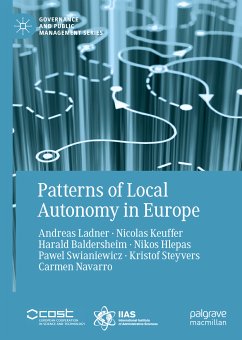
Municipal Amalgamation Reforms (eBook, PDF)
Theory, Methods and Evaluation
Versandkostenfrei!
Sofort per Download lieferbar
96,95 €
inkl. MwSt.
Weitere Ausgaben:

PAYBACK Punkte
48 °P sammeln!
This book provides a comprehensive analysis of municipal amalgamation reforms in Europe. Adopting the analytical and methodological tools of comparative historical analysis, it examines how the history of local government systems has conditioned the adoption of municipal amalgamation reforms across time and space. Beginning with Sweden's early amalgamation reforms during the late 1940s and early 1950s, it assesses how the evolution of the Welfare State, decentralization, urbanization, and economic growth have all impacted amalgamation reforms in ten other European countries.The book challenges...
This book provides a comprehensive analysis of municipal amalgamation reforms in Europe. Adopting the analytical and methodological tools of comparative historical analysis, it examines how the history of local government systems has conditioned the adoption of municipal amalgamation reforms across time and space. Beginning with Sweden's early amalgamation reforms during the late 1940s and early 1950s, it assesses how the evolution of the Welfare State, decentralization, urbanization, and economic growth have all impacted amalgamation reforms in ten other European countries.
The book challenges the prevailing theory that amalgamations are implemented by rational design to improve the efficiency and capacity of local governments. Instead, it argues that state sovereignty, regime changes, centralization of authority and diffusion effects are more likely causes of the adoption of municipal amalgamation reforms. It will appeal to all those interested in public administration, public policy, European politics, and local governance studies.
The book challenges the prevailing theory that amalgamations are implemented by rational design to improve the efficiency and capacity of local governments. Instead, it argues that state sovereignty, regime changes, centralization of authority and diffusion effects are more likely causes of the adoption of municipal amalgamation reforms. It will appeal to all those interested in public administration, public policy, European politics, and local governance studies.
Dieser Download kann aus rechtlichen Gründen nur mit Rechnungsadresse in A, B, BG, CY, CZ, D, DK, EW, E, FIN, F, GR, HR, H, IRL, I, LT, L, LR, M, NL, PL, P, R, S, SLO, SK ausgeliefert werden.












